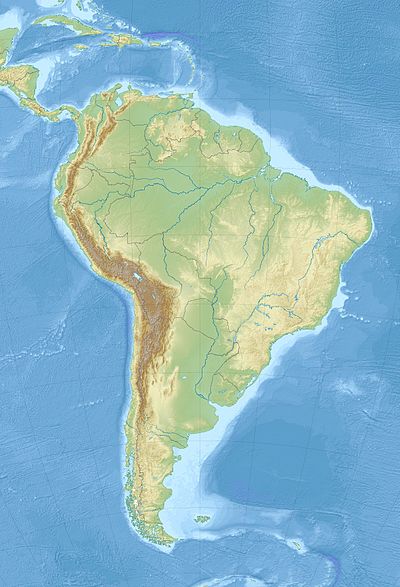Locations of SALMA type localities
 Pleistocene ages
Pleistocene ages
 Pliocene ages
Pliocene ages
 Miocene ages
Miocene ages
 Oligocene ages
Oligocene ages
 Eocene ages
Eocene ages
 Paleocene ages
Paleocene ages
The South American land mammal ages (SALMA) establish a geologic timescale for prehistoric South American fauna beginning 64.5 Ma during the Paleocene and continuing through to the Late Pleistocene (0.011 Ma). These periods are referred to as ages, stages, or intervals and were established using geographic place names where fossil materials where obtained.[1]
The basic unit of measurement is the first/last boundary statement. This shows that the first appearance event of one taxon is known to predate the last appearance event of another. If two taxa are found in the same fossil quarry or at the same stratigraphic horizon, then their age-range zones overlap.
- ^ Flynn & Swisher, 1995
